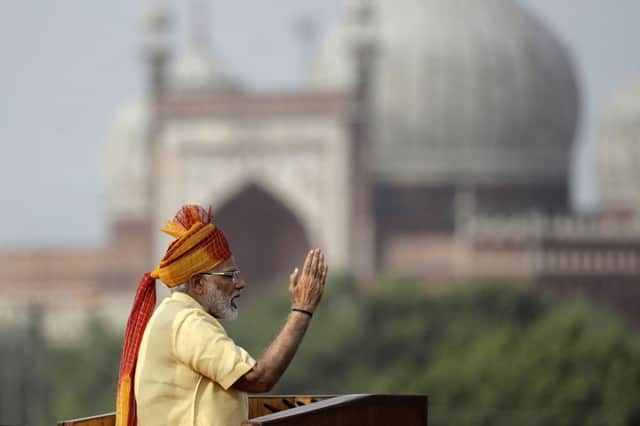'˜All too often we focus on the horrific bloodshed associated with Partition '“ but it's only part of the story'


We all know how the events of 1914-18 changed the map of Europe, the Middle East, Africa and Asia forever and sowed the seeds for a second global conflict. Yet they also led to increased social equality and calls for greater international understanding and reconciliation.
A century later, we may still be horrified by the senseless slaughter of the First World War but from our more distant perspective, we can appreciate how it led to many positive developments.
Advertisement
Hide AdAdvertisement
Hide AdWe wanted to encourage people to see the events of 1947 in the same light. Seventy years ago, a long-running battle for home rule ended when India and Pakistan claimed independence from the UK. In the process up to 14 million people crossed the borders of the two countries in the biggest mass migration in human history. All too often we focus on the horrific bloodshed associated with Partition – but it’s only part of the story.
Today the second and sixth most populous countries in the world are next-door neighbours. They are divided on ethnic and religious lines but they share so much more: their art, their music, their cuisine, their love of cricket and, of course, millennia of shared history.
We decided to mark the two nations’ Independence Days last week by bringing people together to celebrate the ties that bind them. In association with two other Bradford-based organisations, Oriental Arts and Asian Virsa, we held a special tribute concert featuring the songs made famous by ten legendary artistes who have been revered in each country since 1947.
We also asked older people who had witnessed independence at first hand to share their memories with the audience.
Advertisement
Hide AdAdvertisement
Hide AdWe thought we would attract a good turnout – but we did not expect to sell out more than 350 tickets in advance. Maybe this shouldn’t have come as so much of a surprise.
While the daily raising and lowering of the Indian and Pakistani flags at the Wagah border post has become symbolic of the ongoing sabre-rattling between the two countries, relationships between their diaspora communities in the UK are very different. And as we seek to reposition itself outside the EU, British Sikhs, Hindus and Muslims could work together to build bridges between the two countries.
In 2016 India had the world’s seventh largest economy and a study by PricewaterhouseCoopers predicts that by 2050 it will rank second, with Britain down in 10th place. Meanwhile Pakistan is looking to capitalise on the potential of its youthful population and we are already its third largest trading partner.
When Syed Ibne Abbas, the country’s High Commissioner to the UK, visited Bradford, he called on the city’s Pakistanis to make the most of their cultural and linguistic heritage to strengthen these links.
Advertisement
Hide AdAdvertisement
Hide AdMore than 2.5 million people living in Britain today have their roots in present-day India and Pakistan. They visit their extended families on holiday and they understand the traditions, customs and social norms of two countries that could well be among our most important trading partners after we leave the EU. Yet it’s all too easy to overlook how much our Indian and Pakistani communities have in common.
It seems that there is a great appetite for our south Asian communities to celebrate their common heritage. Could it be that they can also come together to help us develop stronger trading links between India and Pakistan and, in so doing, reduce animosity between the two countries? I certainly hope so – but they have to be in a position to do this.
Last week executive search company Green Park issued a report warning that a glass ceiling at the most senior levels could hinder trade with non-EU countries. It revealed that none of the FTSE 100 companies has CEOs or chief financial officers from ethnic minority groups. These findings follow a recent government-backed review by Sir John Parker that called for an end to all-white boardrooms in these businesses by 2021. It seems we can’t afford to wait that long.
Dr Mohammed Ali OBE is the founder and chief executive of QED Foundation, a Bradford-based national charity set up in 1990 to create a harmonious and prosperous society where people of all cultural backgrounds can enjoy the same opportunities.